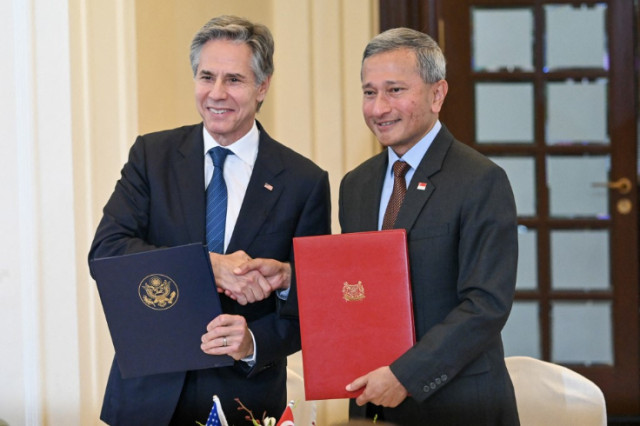Singapore and the United States of America have signed a deal on Nuclear Technology to boost research on climate and energy needs.
The agreement, commonly known as a "123 Agreement", was signed by Singapore Foreign Affairs Minister Vivian Balakrishnan and US Secretary of State Antony Blinken on the second day of his official visit to Singapore.
A joint statement on Wednesday, revealed that Singapore has not made any decision regarding the deployment of nuclear energy in the country.
"Any deployment decision will require detailed studies of the safety, reliability, affordability, and environmental sustainability of nuclear energy in our local context.
"Most designs of advanced nuclear reactors are still undergoing research and development and have not begun commercial operation," the statement read.
According to the statement, the agreement will enable deeper nuclear cooperation and build on Singapore and US' strong bilateral partnership.
The agreement is expected to come into force by end-2024 and will last for 30 years.
This agreement will also enable Singapore to collaborate with other countries that use nuclear energy technologies and designs containing components or intellectual property of US origin.
To date, the US has 24 active 123-Agreements including with China, India and Japan.
123 Agreements provide a legal framework for peaceful nuclear cooperation such as the export of nuclear material, equipment, and components from the United States to another country, according to the US Department of State’s website.
In addition, they facilitate cooperation in other areas, such as educational and technological transfers and collaborations between US and partner countries.
US Congress approval is needed for the deal, which will facilitate Singapore’s access to detailed information on US nuclear energy technologies and expertise that are under export control.
"Other initiatives include the US’ Foundational Infrastructure for the Responsible Use of Small Modular Reactor Technology (FIRST) program, which aims to support partners to build capabilities to better understand small modular reactors or other newer advanced nuclear energy technologies, as well as key issues such as nuclear safety, security and non-proliferation.




















